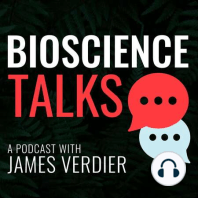23 min listen
Learning What Our Ancestors Ate with Stable Isotope Analysis of Amino Acids
FromBioScience Talks
ratings:
Length:
24 minutes
Released:
Jun 9, 2022
Format:
Podcast episode
Description
Thomas Larsen and Patrick Roberts of the Max Planck Institute of the Science of Human History join us to discuss how we can learn about early hominins diets using stable isotope analysis. The abstract of their BioScience article follows.Stable isotope analysis of teeth and bones is regularly applied by archeologists and paleoanthropologists seeking to reconstruct diets, ecologies, and environments of past hominin populations. Moving beyond the now prevalent study of stable isotope ratios from bulk materials, researchers are increasingly turning to stable isotope ratios of individual amino acids to obtain more detailed and robust insights into trophic level and resource use. In the present article, we provide a guide on how to best use amino acid stable isotope ratios to determine hominin dietary behaviors and ecologies, past and present. We highlight existing uncertainties of interpretation and the methodological developments required to ensure good practice. In doing so, we hope to make this promising approach more broadly accessible to researchers at a variety of career stages and from a variety of methodological and academic backgrounds who seek to delve into new depths in the study of dietary composition.
Released:
Jun 9, 2022
Format:
Podcast episode
Titles in the series (100)
Episode #8: Preventing Midwest Grain Failures: Across the United States, record quantities of corn and soybeans have been harvested in recent years. However, according Dr. David Gustafson of the International Life Sciences Institute Research Foundation, this trend may soon change. The combined and un by BioScience Talks
